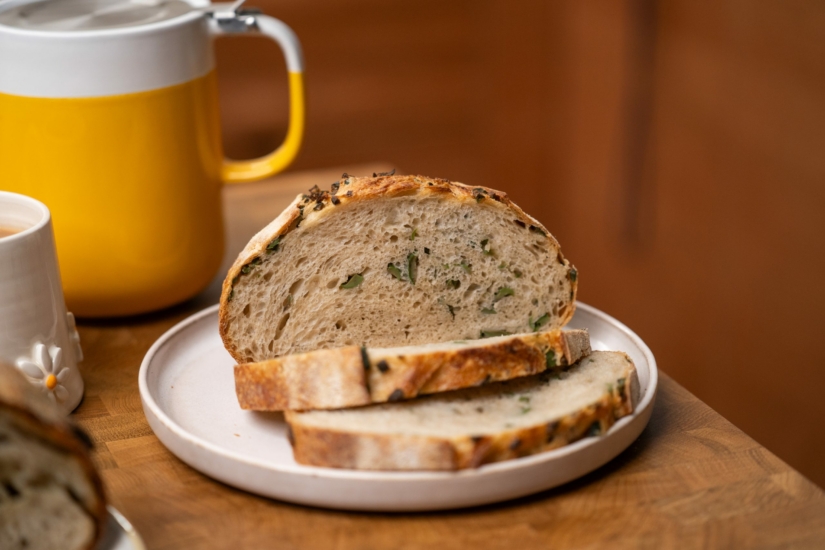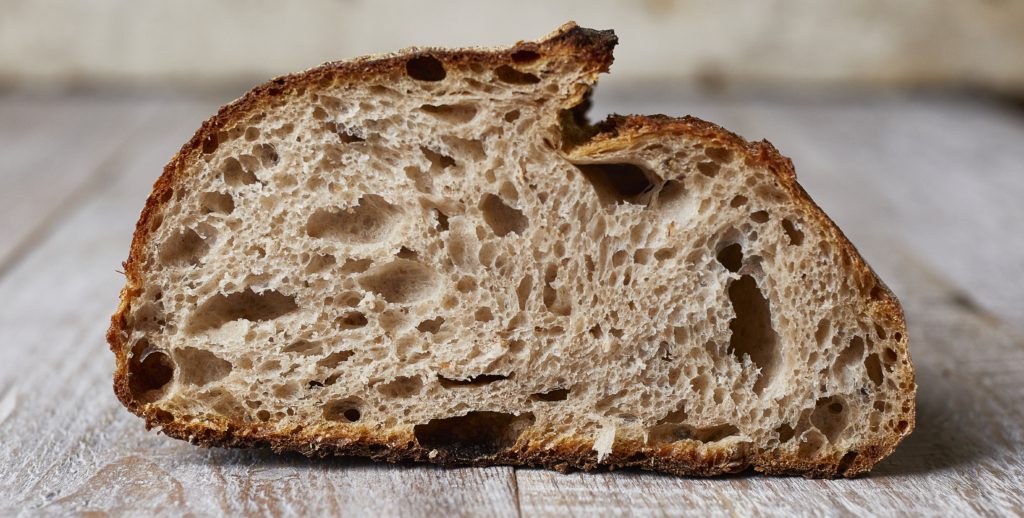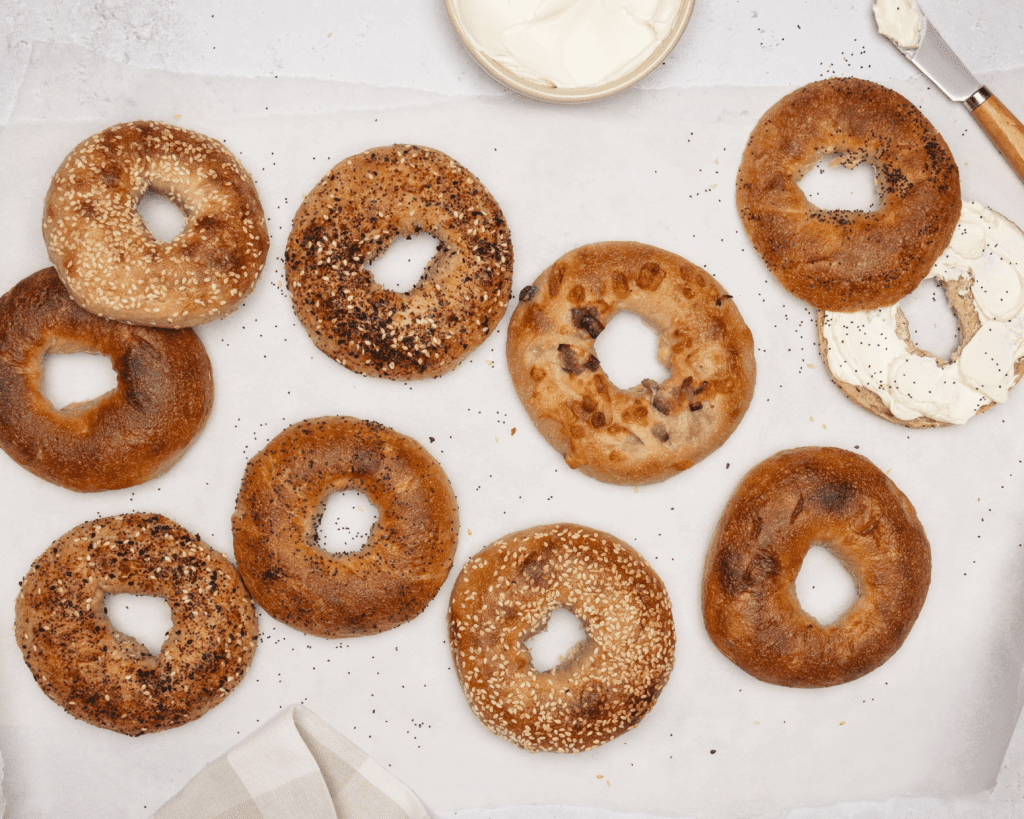Why the UK is adding folic acid to flour

At Good in Bread, we spend our days nurturing sourdough starters, letting dough rise slowly, and chasing that perfect crust. But lately, we’ve had a new topic bubbling up in the bakery — folic acid fortification in flour.
Not everyone is thrilled about this change — and we completely understand why. Many of our customers care deeply about what goes into their bread, value natural ingredients, and prefer to choose what they consume.
So, if you’ve heard that all UK flour might soon contain added folic acid and wondered, “Is that a good thing or not?”, let’s break it down (without breaking our crust).
What is folic acid and why add it to flour?
Folic acid is the synthetic form of folate (vitamin B9), a nutrient essential for cell growth and repair. During very early pregnancy — often before someone even knows they’re expecting — folate helps the neural tube form correctly. This tube becomes the baby’s brain and spine.
When folate levels are too low, the neural tube may not close properly, causing serious birth defects like spina bifida or anencephaly. To prevent this, many countries now fortify flour with folic acid, so everyone—not just supplement-takers—gets enough. In the UK, non-wholemeal wheat flour will be legally required to include folic acid by the end of 2026.
Why fortify flour? The science behind the loaf
There’s solid science behind this decision.
- Public health impact: Studies show that adding folic acid to flour can dramatically reduce cases of neural tube defects worldwide. Research from Queen Mary University of London found that around 2,000 birth defects in the UK could have been prevented between 1998 and 2012 if fortification had started earlier.
- Effectiveness proven abroad: In countries like Australia, Canada and the US, mandatory folic acid fortification has cut neural tube defects by 20–80%.
- The UK’s plan: The British government expects the new rule to prevent roughly 200 neural tube defect cases each year.
So yes, there is some solid reasoning behind it. For more info, check out this article.
What are the benefits of folic acid for people who aren’t pregnant?
Folate is essential for everyday health in all of us — not just during pregnancy. It helps the body make healthy red blood cells, supports normal immune function, and plays a key role in cell repair and DNA maintenance. Getting enough folate can help prevent tiredness related to low red blood cells and supports overall wellbeing. Fortifying flour with a very small amount of folic acid simply helps more people meet their daily needs through foods they already enjoy.
Folic acid and cancer
Many people have questions about folic acid and cancer. Folate — the natural vitamin found in foods — supports DNA repair and healthy cell growth, which is why getting enough before cancer develops may help reduce risk in the first place.
However, since folate supports the growth of all dividing cells, very high doses of synthetic folic acid could, in theory, encourage tumour growth in people who already have cancer or precancerous cells. The amount being added to flour from 2026 is tiny — just enough to meet daily nutritional needs. For most people, including those with a history of cancer, eating fortified breads as part of a balanced diet is safe. If someone with cancer consumes large amounts of fortified foods or takes supplements, it’s wise to check with their doctor or oncologist for personalised guidance.
For more information, check out this article published in the National Library of Medicine.
Why some people are concerned
For some, the idea of mandatory fortification raises ethical and personal-choice questions.
Not everyone needs extra folic acid, and some people prefer nutrients to come naturally through diet, not policy. Others worry that this change could blur the line between truly “real” bread and more industrially produced loaves.
These are valid points — and as a business that believe in slow, transparent, and thoughtful food, we share your instinct to question how flour is treated.
Concerns versus what the science shows
While it’s completely natural to feel wary about any change to staple foods, the evidence suggests fortification is safe for public health. The amount of folic acid added is very small — far below the safe daily upper limit — and studies show it doesn’t alter how flour behaves in baking or fermentation.
In other words, your sourdough will still rise beautifully.
What does flour fortification mean for artisan bakers?
Now, before we all start tossing synthetic vitamins into our bannetons, there are a few nuances to chew on.
- Scope: The rule applies to non-wholemeal wheat flour only, meaning wholemeal, rye, and gluten-free flours are excluded (for now). Many artisan sourdoughs use a mix of wholegrain or heritage flours that fall outside the mandate.
- Dosage: Some experts, including researchers at UCL, argue the UK’s proposed fortification levels may be too low to reach full potential benefits.
- Taste and fermentation: The good news — studies show folic acid fortification doesn’t noticeably change how flour behaves during baking or fermentation. Your loaf will rise just fine.
- Transparency: For us at Good in Bread, it’s about honesty. If flour changes, customers should know what’s in their dough.
Is folic acid fortification good or bad?
In short: it’s a safe public health measure, but not something we would choose to add to every loaf ourselves. Adding folic acid to flour helps protect future generations and is considered safe for healthy people. At the same time, we believe people should have the choice to decide what goes into their food. If you have any concerns — for example, if you have a medical condition or cancer — it’s best to check with your doctor.
Our take: Transparency first
At Good in Bread, we’ll keep doing what we do best:
- Using high-quality, minimally processed flours that nourish both body and soul.
- Clearly labelling any breads made with fortified flour.
- Continuing to include our overnight oat loaf and bagels which don’t include folic acid for those who wish to avoid it.
- Talking openly about where our ingredients come from and why.
The final crumb
Fortifying flour with folic acid involves very small doses, so there’s no need to worry — for most people, it won’t make a huge difference, though it could be helpful in some cases.
Either way, we’ll always champion real bread — made slowly, with care, and with full transparency about what’s inside. Every loaf we bake is good in every sense of the word.
FAQs
Will all Good in Bread loaves contain folic acid?
No, not all of them. Our overnight oat loaf and bagels are currently unfortified. We are working on creating more recipes without folic acid so stay tuned!
Does folic acid increase cancer risk?
Very high doses of folic-acid supplements can promote the growth of existing cancer cells, but the tiny amount added to flour under UK rules is safe, even for people with a history of cancer. Anyone undergoing cancer treatment should check with their doctor or oncologist for personalised guidance.

